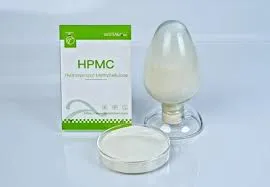
ಸೆಪ್ಟೆಂ . 10, 2024 03:11 Back to list
Hydroxyethylcellulose Based Products - Versatile Solutions for Various Applications
Hydroxyethyl Cellulose A Versatile Polymer for Various Applications
Hydroxyethyl cellulose (HEC) is a water-soluble polymer derived from cellulose, a natural polymer obtained from plant cell walls. With its unique properties, such as high viscosity, adhesive ability, and thickening characteristics, HEC has become an essential ingredient in numerous industries, ranging from pharmaceuticals to cosmetics, and from construction to food.
Hydroxyethyl Cellulose A Versatile Polymer for Various Applications
One of the most notable applications of HEC is in the pharmaceutical industry. It serves as a thickening agent in liquid formulations, providing the desired viscosity for topical gels and ointments. Additionally, it acts as a stabilizer in emulsions, ensuring that active ingredients remain evenly distributed throughout the product. HEC also plays a crucial role in controlling the release of drugs, making it an effective excipient in controlled-release formulations. Its biocompatibility further supports its widespread use in pharmaceuticals, offering a safe option for formulations intended for human consumption.
hydroxyethylcellulose based

In the cosmetics industry, HEC is commonly found in products like shampoos, conditioners, lotions, and creams. It not only enhances the texture and consistency of these products but also provides a smooth feel upon application. Additionally, HEC helps to retain moisture, making it beneficial for skincare formulations. Its ability to form a film on the skin also contributes to the feeling of hydration and protection, which is a crucial selling point for many cosmetic products.
In the construction sector, HEC is used as an additive in adhesives, sealants, and tile grouts. Its thickening and adhesive properties improve the workability of these materials, allowing for better application and performance. HEC enhances the spreadability of adhesives, making it easier for construction professionals to achieve the desired bond strength while providing additional moisture retention properties, which are essential for the hydration of cement-based materials.
Moreover, HEC has found its way into the food industry, where it serves as a thickening agent and stabilizer in various food products. Its ability to form gels and improve texture can enhance the sensory qualities of food items, contributing to a better consumer experience. It is also used in gluten-free formulations to mimic the texture of gluten, providing an alternative for those with dietary restrictions.
In conclusion, hydroxyethyl cellulose is a versatile and valuable polymer that plays a significant role in multiple industries. Its unique properties make it an indispensable ingredient in pharmaceuticals, cosmetics, construction, and food products. As industries continue to evolve, the demand for HEC and its derivatives is likely to grow, highlighting the importance of this natural polymer in modern formulation and production processes. Whether it’s enhancing the performance of a hair care product or improving the texture of a food item, HEC stands out as a key player in creating effective and appealing products.
-
Versatile Hpmc Uses in Different Industries
NewsJun.19,2025
-
Redispersible Powder's Role in Enhancing Durability of Construction Products
NewsJun.19,2025
-
Hydroxyethyl Cellulose Applications Driving Green Industrial Processes
NewsJun.19,2025
-
Exploring Different Redispersible Polymer Powder
NewsJun.19,2025
-
Choosing the Right Mortar Bonding Agent
NewsJun.19,2025
-
Applications and Significance of China Hpmc in Modern Industries
NewsJun.19,2025







